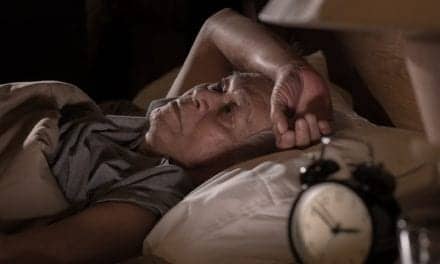For the more than 36 million people plagued by tinnitus, insomnia can have a negative effect on the condition, worsening the functional and emotional toll of chronic ringing, buzzing, hissing, or clicking in the head and ears, according to a new study from Henry Ford Hospital in Detroit.
The study shows a significant association between insomnia and the severity of perceived tinnitus symptoms, with insomnia patients reporting greater emotional distress from tinnitus.
"Tinnitus involves cognitive, emotional, and psycho-physiological processes, which can result in an increase in a patient’s distress," says study co-author Kathleen L. Yaremchuk, MD, chair, Department of Otolaryngology-Head & Neck Surgery at Henry Ford. "Sleep complaints, including insomnia, in these patients may result in a decrease in their tolerance to tinnitus."
The study was presented at the Combined Otolaryngological Spring Meetings in San Diego.
For the Henry Ford study, Yaremchuk, Dr George Miguel, and their research team conducted a retrospective study of 117 patients treated between 2009 and 2011 at Henry Ford.
Information was gathered from patients through telephone and written interviews using the Tinnitus Reaction Questionnaire (TRQ, which determines the emotional effects of tinnitus on a person’s lifestyle and general well-being) and the Insomnia Severity Index (ISI, a brief screening measure of insomnia) scales.
Severity of TRQ was shown to be a good predictor of sleep disturbance and group association, especially the "emotional" subscore component (sensitivity 96.9% and specificity 55.3% for identifying tinnitus patients with insomnia).
The greater the insomnia disability, the more severe the patient’s complaints were regarding the tinnitus, the study finds.



![Why Sleep Medicine Is Well-Positioned Now and Post-Pandemic [Editor’s Message]](https://sleepreviewmag.com/wp-content/uploads/2020/06/sleep-medicine-position-pandemic-440x264.jpg)
